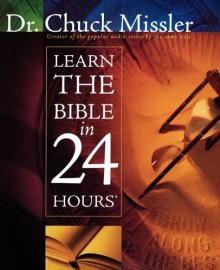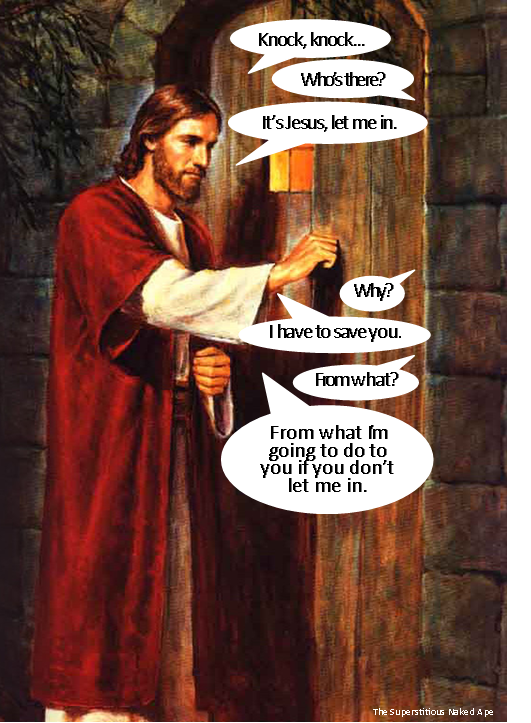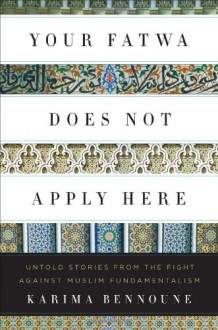
Looking through the reviews of this book I have suddenly discovered that I am the only person giving it one star. Mind you, pretty much every review is a carbon copy of the other – wonderful book, clearly explains the Bible, very useful in helping me understand. In fact there is only one person who actually provides some criticism of Missler's methodology, and even then she simply says that there are a few times where he makes statements without any supporting evidence (though I'd say that he does it a lot more than a few). Mind you, most of the people that wrote the reviews will probably read mine and scream out 'heretic' but then again it is a badge that I wear with pride. They said exactly the same thing about Martin Luther during the reformation (and about Jesus Christ). For those who have read this book (and are familiar with Missler's teachings) I simply say this – I'm an amillenialist who believes that the church is the new Israel and that most of the events in Revelation have already happened (though I'll explain that a little further on).
My position is that this book is incredibly dangerous. Mind you, it is rare these days that I don't mark a book on Goodreads that I am currently reading, or post the review to my feed, but the main reason that I am doing so with this book is because I believe that it should only be read by people who are really strong in their faith, and then only to be aware of some of the teachings of the fundamentalists.
The reason that I say that this book is dangerous is not just because it teaches fundamentalist doctrine, but enforces it's teachings by saying that Jesus/God said this and if you don't believe it then you are denying God/Jesus. For instance, he argues in favour of a seven day creation (which I he is entitled to do) but then finishes off his argument by saying that Jesus said that the world was created in seven days, and thus if we do not believe in a seven day creation then we are denying Christ. It puts young Christians in a very difficult bind because they are forced to believe in this very specific doctrine, and are prevented from questioning it because, well if Jesus said it then it must be true. The fact that this book is actually targeted at people who don't understand the Bible all that much concerns me even more because it has the effect of radicalising them.
I used to really like Chuck Missler years ago because he said some quite interesting things, and opened up the Bible in a way that it had never been opened to me previously. However I found myself believing in a literal seven day creation and a literal interpretation of Revelation, which didn't do any good for my relationships with non-Christians. However, having returned to his teaching, and reading this book with a fresh, and more mature, mind I have come to realise that Missler is actually pro-Israel, pro-America, anti-Muslim, and anti-homosexual (I won't say Islamophobic or Homophobic because I don't think he fears them, he just hates them with a passion).
The problem with Missler is that he does point out a lot of theologically sound doctrine, and has the potential to help you understand the structure of the Bible, how it all fits together, how it is the story of God's redemption of humanity, and how it points to the cross. However he completely undermines his treatise by taking a incredibly literal view of the Bible, and instead of focusing on Christ's salvation he focuses on God's judgement. In fact his main focus is that God will judge the heathan and apostate, however you can be saved by trusting in Christ. It sort of reminds me of this meme.

Creation
Missler uses a lot of science in his exposition of the Bible, especially in the section on Genesis. The problem that I find with his scientific explanations is that he seems to force the science to fit the Bible and if it doesn't then he outright rejects it as heresy. This fascinated me when I was younger because I love science, however I have since come to understand that science and the Bible don't always fit. I don't believe that we are supposed to take every part of the Bible literally, and when it comes to science there is actually a lot that we do not understand. In fact a lot of science is still very theoretical and is only held together by mathamatical equations. The problem with forcing science to fit a literal interpretation of the Bible creates a science that is based upon supposition and faulty mathematical logic.
My position on Genesis is that Genesis 1 is actually poetic in nature, and uses this form to outline the process of creation. While he argues about a literal interpretation he seems to ignore Genesis 2 which has a completely different order of creation (man is created before the plants and animals were created). Like many fundamentalists they take portions of the Bible that suit their arguments and they also argue context only where reading contextually supports their supposition. The problems with arguing a literal interpretation is that according to the poem the Earth was created before the suns and the stars, which means that the 24 hr day simply did not exist. My position is simply that these days represent stages of creation, and that to understand the creation narrative we need to understand it's poetic form. Another interesting thing is that they argue a literal 24 hour day here, but when it comes to Daniel's prophecy of the end times, where he speaks about weeks, it is only to interpret that as a week of years – where is the consistency?
Nephalim
Personally, I think the idea of the angels coming down to Earth, mating with humans, and creating a genetic race of super beings is rather cool. However there is a problem with that. He seems to completely ignore the fact that Jesus later says that angels are sexless. So, the question that I raise is, if angels are sexless how is it that they can have sex with humans (maybe they gave themselves the respective equipment)? Look, I believe in a world wide flood, and I think it is cool that humans and dinosaurs may have co-existed (where else did the legend of dragons come from), however while there is a lot of evidence of such a flood, nobody has ever dug up the skeleton of a Nephalim.
However there is a big problem that I have with Missler's teaching on the subject. His arguments in support of the genocide of the Cananites is that there were Nephalim dwelling among them, and the thing with the Nephalim are that they are tainted. This is why God destroyed the world by a flood, and also why the Israelites were instructed to commit genocide against the Cananites. The fallen angels had tainted humanity, and these tainted individuals had to be killed. My concern is that this teaching gives rise to racism and racial superiority. It also suggests that certain races could be killed off simply because they are belived to have a genetic taint. In a way it encourages genocide.
This teaching is further compounded by his suppositions from the table of nations. He points out that the Bible apparently identifies the originals of each of the races and tribes on the Earth. The problem is that the sons of Noah exist in a hierarchy, with Shem at the top, followed by Japtheth, and finally by Ham. The problem with the hierarchy is that it once again leads to racism and racial superiority. It suggests that all of those descended from Ham and Japtheth are subservient to those who are descended from Shem. What ever may have been the case back then, Christ's death and resurrection has opened the door to salvation to all nations, races, creeds and languages. Everybody is one in Christ – there are no favourites, no one who is special, all are equally accepted and welcomed. Christ is the great leveller.
Israel
I was going to say that that Missler is very pro-Israel, however I should actually say that he is incredibly pro-Israel. Sure, I accept that the Jews are God's chosen people, and the fact that they survived a 2000 year long diaspora is testament to that. However my position that the Jews still exist, and survive, is evidence pointing to the authenticity of the Bible. Where as most nations would have simply ceased to exist and would have vanished from the face of the Earth over that time, the Jews still exist and still have a racial identity. While I support Israel's self-determination, and condemn the holocaust, it does not excuse their actions towards the Palestinians. In fact I believe that their actions in Palestine are atrocious. Not only are they raging war against an entire population, they are entering their territory and constructing illegal settlements, despite the fact that they have been told not to.
Every morning when I open my Bible app I get the same loaded question:

This isn't just a loaded question, it is an incredibly loaded question. If you answer no you are effectively saying that they should let all of their enemies enter their lands and massacre them. However if you say yes then you are giving support to their continued actions against the Palestinians. This isn't about a small group of special forces operatives going into Palestine and arresting those behind the rocket attacks, but rather sending warplanes into the land and indiscriminately bombing civilian populations. Mind you, the propaganda in this situation is fierce, you simply have to look at the internet to see it, but here is a couple of examples:

Pro-Israel Cartoon

Pro-Palestine Cartoon
Judgement
Look, I'll be blunt, and I know that I am not making any friends here but I believe in sin, and I also believe in the judgement of God. However, the thing is that there is a really big danger when we focus on judgement and let salvation take a back seat. It is true that the Bible says that we are all sinners and are under the judgement of God, however it is also equally true that Jesus died for the ungodly. The problem with focusing on judgement is that it is like the meme that I posted about – Jesus is saying 'follow me or else'.
I don't think it is like that because what we are also told is that God gave us up to our sinful nature. The thing is that God has shown us a way where we can live in harmony with God, nature, and our follow humans. However what sin does is that it makes us want to put ourselves front and centre. We want what we want and screw everybody else (and the environment). The thing is that by living selfish and self-centred lives we are very much capable of bringing judgement upon ourselves through our own actions, and when society all goes off to do what they see is right in their own eyes then disaster will follow – just look at the book of Judges.
The problem that I have with this book is that it seems to elevate some sins above others, and misinterprets some passages. For instance, he focuses entirely on the sin of Sodom and Gomorrah as being homosexuality. I don't actually think that that is the case. You see this is only an example of their sin, and it is not homosexuality, or even blazen homosexuality as he suggested. Rather it their actions towards Lot's visitors. When they came to Lot's house and tell him to send out his visitors so that they could have sex with them, this wasn't an invitation, or a proposition, this was a demand. I doubt the angels were in any real position to say 'thank's for the offer, I'm really flattered, but I think I'll pass'. It doesn't even sound as if it was an invitation to participate in an orgy. To me this sounded like a demand that suggested that the Angels really didn't have an option. I doubt if the angels walked outside they could have turned down the sex and simply had a game of snakes and ladders instead.
It is not the homosexuality that is being focused on here, it is the utter depravity of the society in which Lot lives. It was a cut throat world ruled by a mob where people simply could not walk around at night safely. If you did there was a high likely hood that you would have been mugged, raped, and then brutally murdered.
Escatology
I believe that this is a very dangerous doctrine. Sure, I believe that one day Christ will return to judge the world and to bring his children to live in a restored creation, but I also believe that Jesus is more concerned with how we live now rather than focusing too much on how the end times are going to play out. In fact I believe that we don't actually need to know how it plays out because it actually isn't all that important – rather it is a distraction. The Bible isn't about how God is going to bring this present world to a close – we are just told he is going to do that some time in the future, whether it be in half-an-hour's time or in half a millenium's time. The Bible isn't about the future, it is about how we should live now.
The thing with Revelation (and other parts of the Bible that are purportedly said to be about the end times) is that they have all been interpreted as different things in different times and in different places. The ancient Christians saw the beast from the sea as being Rome, the Christians living in the middle East saw it as militant Islam, and the people of the Reformation saw it as the Roman Church.
You see, Missler doesn't just dump on non-Christians, he dumps on Christians as well. In fact he says that those who claim to be amillenialists (as I am) are denying the word of God and calling him a liar. That is a but harsh considering that amillenialists actually believe that we are currently living in the millenium. The thing is that amillenialists believe that the end times are the period between Christ's ascension and his second coming. What Missler is doing is dictating what they believe to people who probably don't know otherwise.
One big issue that I noticed was that he suggested that new Christians should read the book of Revelation first because 'it bestows a special blessing on the reader'. Hold it, what about the gospels – the four central books around which the entire Bible is focused that talk about the life and teachings of the man that forms the basis of the Christian religion? Should it not be more important to find out what Jesus actually says rather than jumping into a book that is so full of old testament allusions and symbols that new readers have no idea what it is about. To me that is preposterous. I remember when I read Revelation years ago before I had any understanding of the Bible, and came up with some really bizarre ideas. The thing is that I was making statements about the four horsemen without even realising that they were a reference to the book of Zechariah.
The thing is that the book of Revelation is not mapping out a path of future history, but rather is a book that was written to Christians living under oppression in Rome. We, living two thousand years from then, cannot take the book out of that context and apply it to the world as it exists now – it just isn't the same. The other interesting thing is that he regularly attacks Russia, China, and the European Union. Once again I find this really interesting because these three superpowers actually provide a counter-balance to the power of the United States. In fact his decrying the US's rejection of the gospel of Christ suggests that there is a belief that maybe, just maybe, the United States is supposed to be the protector and guardian of the Christian message and if the United States rejects it's Christian heritage then the world is doomed.
For all of those who actually believe that America was at one stage a Christian nation, just remember this:



 Log in with Facebook
Log in with Facebook 















